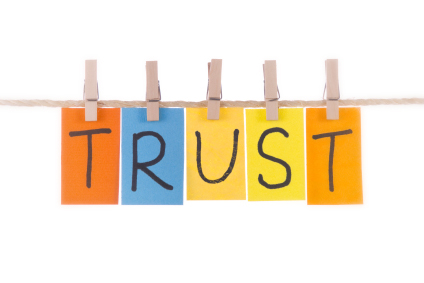Developing a Personal Relationship With a Client: It’s All About Trust
Leadership

When prospects convert to clients and customers—and stay with your organization for many years—it’s usually because you and your colleagues offered accounting services and support that is valued and appreciated.
However, one very important aspect of increasing recruitment and retention beyond your accounting smarts is the “personal” relationships you develop. After all, if a client does not get along with his or her service provider, the client will go elsewhere.
Developing a personal relationship with your client is important because it helps you retain the client for the long term—but it’s also important for us as human beings because we are programmed to thrive on interaction and dialog. You actually may come to think of your clients as true friends, so whether you hang out at a ball game, go to dinner, or even treat each other as confidants; it is inevitable that the relationship will grow.
Yet, you may not be comfortable in stepping outside of our workplace demeanor. If you are a private person and want to keep your work relationships strictly professional, at what point do let your guard down?
Here are several steps you can take to secure your clients’ trust and cultivate a one-on-one rapport for winning results—while still maintaining your professional persona.
Start With Trust
There is no way a relationship can move from professional to personal without mutual trust. We experience this everyday in the workplace. Once you trust a colleague, a bond begins to form and you talk about topics that are, indeed, more personal.
It works the same with your clients or customers, and as we all know, there is no set of rules or guidelines that lets you know when it’s okay to trust someone. Instead, you have a gut-feel with some triggers along the way. For example, at some time in the future, you’ll know without a doubt that your mutual trust spawned a friendship. Perhaps a client shared some private information with you of a personal nature that had to do with his or her health or family. All of a sudden—probably without giving it too much thought—you have become a trusted friend and you would not betray that trust, unless, perhaps, the client shared something that would do harm or is of a criminal nature.
Become a Trusted Business Advisor
This sounds cliché, but it’s actually very relevant. Over the last several years, the American Institute of CPAs promoted the CPA a “trusted business advisor” for one good reason: owners and stakeholders look to the CPA as an expert who help businesses grow.
Once you become a trusted business advisor to a client, the client will come to appreciate your point of view and treat you more like a peer than a provider—but how do you let the client know you can be trusted?
Actions speak louder than words! Your work with a client will demonstrate your accounting experience and know-how, especially if you improve their business.
- Describe your solution in real-word terms the client can understand. Not everyone is as numbers-savvy as a CPA, so if you reduced a client’s tax liability, for example, frame that savings in terms of someone tangible: “Stan, your tax savings of $25,000 enables you to get that third customer service representative you’ve being wanting to hire.”
- Offer referrals to the client. Instead of always being the one to seek referrals to increase business at your firm or organization, have a one-on-one discussion to figure out who you can introduce the client to for increased business. This approach will most likely be unexpected, but very welcome by the client. Best of all, it ensures you retain the moniker of “trusted business advisor.”
When Not to Cross the Line
Most likely, you’ll know in your heart when it’s not right to infringe on a professional relationship because the “vibe” just isn’t there. Perhaps the client makes it crystal clear that the conversation should be all about business … or perhaps you’re just not comfortable crossing the line.
That’s okay, of course. You don’t have to be friends with all of your clients. Chances are, just as in our close personal relationships, you may only be friends with a handful throughout your career. Don’t play mind games with yourself and begin to think there’s something wrong with you. In fact, you may never know the real reason why a client does not want to become a friend.
The bottom line for you and your organization is to find any way you can to build and keep business. If you retain a client based on friendship, that’s great, but be wary that first and foremost, you are employed by your company to do the best job you can, regardless of if the client is a friend or just another business relationship. Trust your judgment; trust in yourself.
